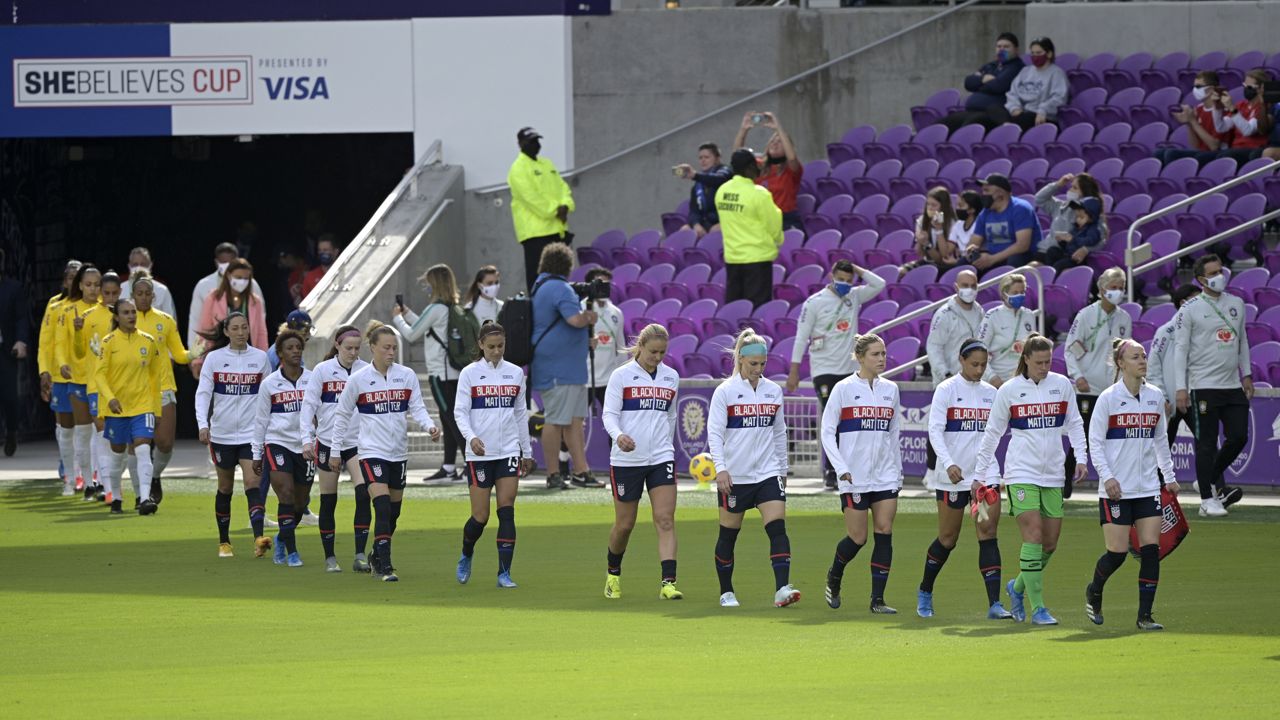SAN FRANCISCO (AP) — Players on the U.S. women’s national soccer team have asked a federal appeals court to overturn a lower court decision throwing out their lawsuit seeking equal pay to the men's team.
Players led by Alex Morgan asked the 9th U.S. Circuit Court of Appeals on Wednesday to reinstate the part of their suit that U.S. District Judge R. Gary Klausner threw out last May when he granted a partial summary judgment to the U.S. Soccer Federation.
“For each win, loss and tie that women players secure, they are paid less than men who play the same sport and who do the same work; that is gender discrimination,” players' spokeswoman Molly Levinson said in a statement. “A pervasive atmosphere of sexism drove this pay discrimination.”
Appeals are assigned to three-judge panels. The 9th Circuit estimates that oral arguments in civil appeals will be scheduled 12-20 months from the notice of appeal and 9-12 months after written briefs have been completed.
The court asked players to submit their brief by July 23 and the USSF its brief by Aug. 23. The players' optional reply brief is due 21 days after the USSF submission.
The U.S. has won the last two Women's World Cups and is the favorite in this summer's Olympic women's soccer tournament.
Players sued the USSF in March 2019, contending they have not been paid equitably under their collective bargaining agreement that runs through December 2021, compared to what the men’s team receives under its agreement that expired in December 2018. The women asked for more than $66 million in damages under the Equal Pay Act and Title VII of the Civil Rights Act of 1964.
Klausner threw out the pay claim last May, ruling the women rejected a pay-to-play structure similar to the one in the men’s agreement and accepted greater base salaries and benefits than the men, who failed to qualify for the 2018 World Cup.
The sides reached a settlement Dec. 1 on working condition claims that Klausner approved Monday. The deal calls for charter flights, hotel accommodations, venue selection and professional staff support equitable to that of the men’s team.
The USSF says it pays equally for matches it controls but not for tournaments organized by soccer's world governing body.
FIFA awarded $400 million in prize money for the 32 teams at the 2018 men’s World Cup, including $38 million to champion France. It awarded $30 million for the 24 teams at the 2019 Women’s World Cup, including $4 million to the U.S. after the Americans won their second straight title.
FIFA has increased the total to $440 million for the 2022 men’s World Cup, and its president, Gianni Infantino, has proposed FIFA double the women’s prize money to $60 million for the 2023 Women’s World Cup, where FIFA has increased the teams to 32.



